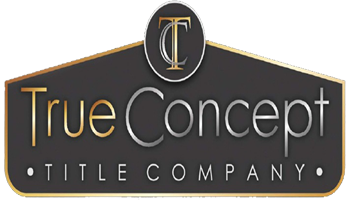We’ve seen it time and time again. Loved ones of a deceased family member put a house on the market, the house attracts a potential buyer, it goes through the process, and suddenly there’s an issue with probate.
Often, it is assumed that a loved one’s estate is rock solid…until it comes time to pull the title and deed.
Here we touch on how probate can affect title rights and provide suggestions on how to minimize closing delays on the sale of a home that is in probate.
How Probate Can Affect Title Rights
If listed incorrectly, even the smallest detail can have a huge impact on title rights. At True Concept Title, these are the most common mistakes our national title agents come across: Incorrect legal description in the court order
- Improper recordings after divorce
- Improper Notice to Beneficiaries
- Not recording Disclaimers of Interest
- Missed heirs or beneficiaries
Homes being sold by loved ones of a deceased family member often cross state lines – yet another complication in the home-selling process. Even when clients are utilizing title and escrow service in multiple states or areas, True Concept Title can help. Call us today at 866-651-6224 for more information.
Signing the Listing Agreement
One of the first steps when selling a home is signing the listing agreement. Simple enough, right? Not so fast.
When it comes to selling a property of a deceased loved one, a common misconception is that the surviving spouse, children, or another family member of the deceased homeowner have the authority to sign the listing agreement. This is not the case.
Before the listing agreement is signed, a realtor must pull the vesting deed to ensure the person listed on the title is the one signing! If this is not the case, the home will go into probate. The ONLY person who has the legal right to sign documents on behalf of the decedent is the personal representative, a.k.a. the Executor of the Will.
The Language of Survivorship Rights
It is important to note that the language applied within titles and deeds is incredibly important. Many times, a co-owner of a home is listed as a “tenant-in-common” on the deed, leading the co-owner to believe he or she has the right to use and dispose of the property. Again, this is not the case.
To avoid probate, the default language in the deed must make mention of “survivorship rights”. By doing so, the share of the decedent’s interest in the property is automatically transferred to the other owner or owners listed on the deed.
Responsibilities of the Title Agent During Probate
A title agent plays a key role during the home selling process, especially if the home goes into probate. If this is the case, one of the main functions of a title agent is to ensure the personal representative has been properly appointed.
Additionally, a title agent must have the Letters of Administration recorded, have the title transferred to the personal representative, and have the deceased person removed from the deed. This is just among the many services provided by our national title agents.
Common Documents Required by Underwriting as Related to Probate
At True Concept Title, we have the experience and national presence required to effectively handle the complex process of selling a home that has gone into probate. In order to minimize delays with the closing process, the following documentation is required:
- Proof that the probate administration has been opened
- Affidavit of continuous marriage
- An official recorded death certificate
- Tax exemption forms *Proof that the decedent’s estate doesn’t owe taxes, varies by state.
- The signature of heirs, personal representative, or other beneficiaries *Probate may reopen probate is this was not originally executed properly.
Title & Escrow Services at True Concept Title
True Concept Title maintains a presence across the United States by providing a complete line of title and escrow services in every state. For more information on our services, please contact us today at 866-651-6224.


